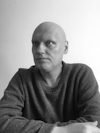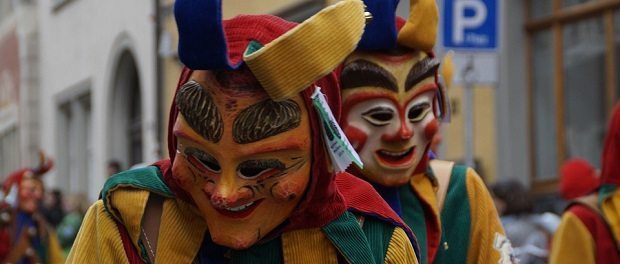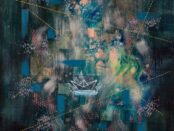[dropcap style=”font-size:100px; color:#992211;”]S[/dropcap]elf-knowing idiocy, the innocent idiot, the meta-critical savant.
In part one, we charted the slide from simple ignorance to arch ironist, but the slide continues….
The 4th movement (All critical allusions are gone leaving a super-charged idiot)
At this stage even the ironic smirk or deadpan expression which indicates self-awareness has been jettisoned and replaced with total enthusiastic involvement. A clear example of this is the song and video for, ‘What does the fox say?,’ The content is banal and purposely simplistic, ‘cow says moo, sheep goes baa,’ only the ‘self-evident’ stupidity of the song and video and many viewer responses is meant to indicate the safe ironic position.
Watching is now an implication of solidarity with this position (the self-aware idiot) – why would a person direct criticism at something so obviously and intentionally stupid? The fact of its inherent stupidity is enough to convince the audience that it must be somehow ironic and distanced from actual idiocy. And yet there is still yet another level we can slide to.…
The 5th movement (The central idiot is jettisoned and the suppercharged idiocy is redistributed among the audience)
The fifth stage recognises the internet phenomenon or meme. I have in mind here the ‘Harlem Shake’ craze. Here there is no central idiot at all but rather people, often in workplaces, recording themselves going about their ordinary duties.Suddenly there is a cut in filming, music plays, revealing all of the ‘ordinary’ people dancing in overt and ridiculous ways. It is a kind of debasing idiotic solidarity to show that they aren’t simply ordinary embedded idiots doing ordinary things, but that they are ironic and self-aware idiots. The position of the idiot is ‘out there’ rather than the result of a studio or artist fabricating it.
People show they too are clever enough, humble enough, fun enough to be idiots, and they expect (rightly) that other people will watch this, enjoy it and replicate it. A community is established of self-knowing idiots, its currency is all the aforementioned stages of an eventual slide into willed nihilism.
The Good?
Irony is not always applied in a way which leads to this slide into nihilism. For example, the comedian Stewart Lee manages to employ irony to great effect playing with linguistics and cliché to undermine weak arguments and draw attention to inconsistencies in his opponents’ ideology. However, Lee is firstly critical, secondly ironic. This is important, he applies irony to further his criticism. With the Lily Allen example, or Psy, they are first ironic: they wear criticism to further an ironic disposition, to celebrate the self-knowing cynic who has co-opted criticism into an ironic, idiotic persona. Think here also of the limitations of the ‘comedy roast’ phenomenon, which is willingly attended by the target of the criticism to show how open and aware they are, able to exercise and expose their shortcomings.
Notice for example the difference in tone in Allen’s video, which displays an excess of photoshoots and press attention, mixed with a traditional music video. The seductive imagery, rhythm and lyrics all serve to pull the viewer into the world which directs to the central figure of Allen herself. In Lee’s take on celebrity culture, his long attack on the total uselessness of the celebrity hardback book is funny, but the humour serves to push the viewer out of their casual acceptance of low or rubbish culture. His real target is his audience’s lazy thinking, their laughter does not serve as a show of solidarity with the target, it reveals their own inner critic. The shock makes them laugh.
Lee’s gamble is that his audience will appreciate the activation of their critical awareness rather than hating him for revealing their lame sympathies. We can imagine that Britney Spears and other genuine idiots are redeemed by Lee as they laugh themselves into a critical awareness, a fall, while Allen and Psy prepare attacks and resistances to help them maintain their own stance.
Handling irony is like handling plutonium: you must be careful that the radiation doesn’t kill you, or at least rob you of the ability to make meanings and give force to ideas (and of course, to be able to tell the difference between glib semi-intellectual posturing and genuine critical awareness). These things require a kind of effort that self-aware idiocy depletes.
To the agents of that turgid and most corrupt position which arrests the development of their audience….
“To the last, I grapple with thee; From Hell’s heart, I stab at thee; For hate’s sake, I spit my last breath at thee,”
– Herman Melville, Moby Dick.

Michael Eden is a visual artist, researcher and writer at the University of Arts London exploring relationships between monstrosity, subjectivity and landscape representation.




















